What next for Scotland's Covid vaccine passport scheme?
- Published
- comments
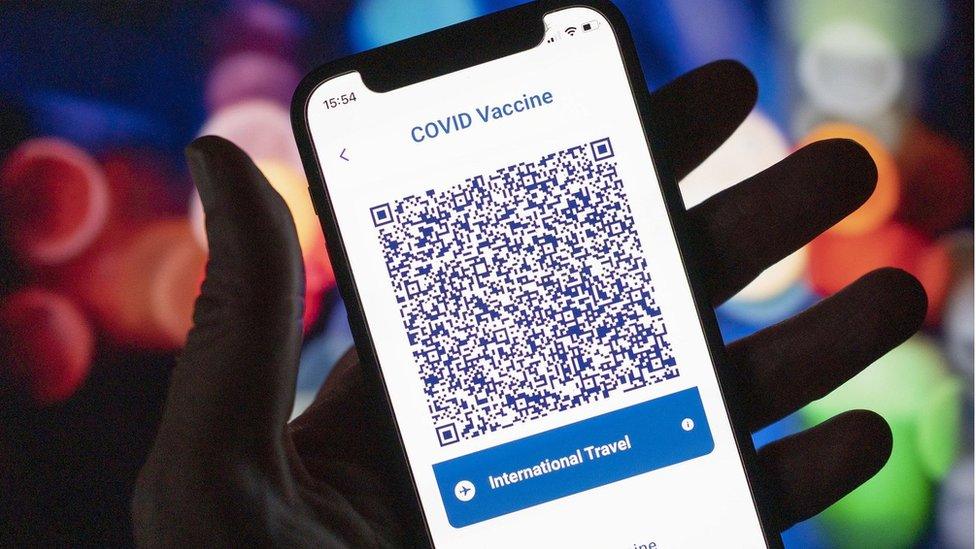
The first minister is to reveal later whether Covid restrictions, including the vaccine passport scheme, will be extended.
It follows a warning, external from Scotland's chief medical officer last week that case numbers are rising again.
Nicola Sturgeon will update MSPs after her cabinet reviews the latest advice and data.
The Scottish Chambers of Commerce has said further restrictions could put thousands of firms and jobs at risk.
Deputy First Minister John Swinney confirmed last week that extending the vaccination certification scheme to a wider range of settings was one of the measures being considered.
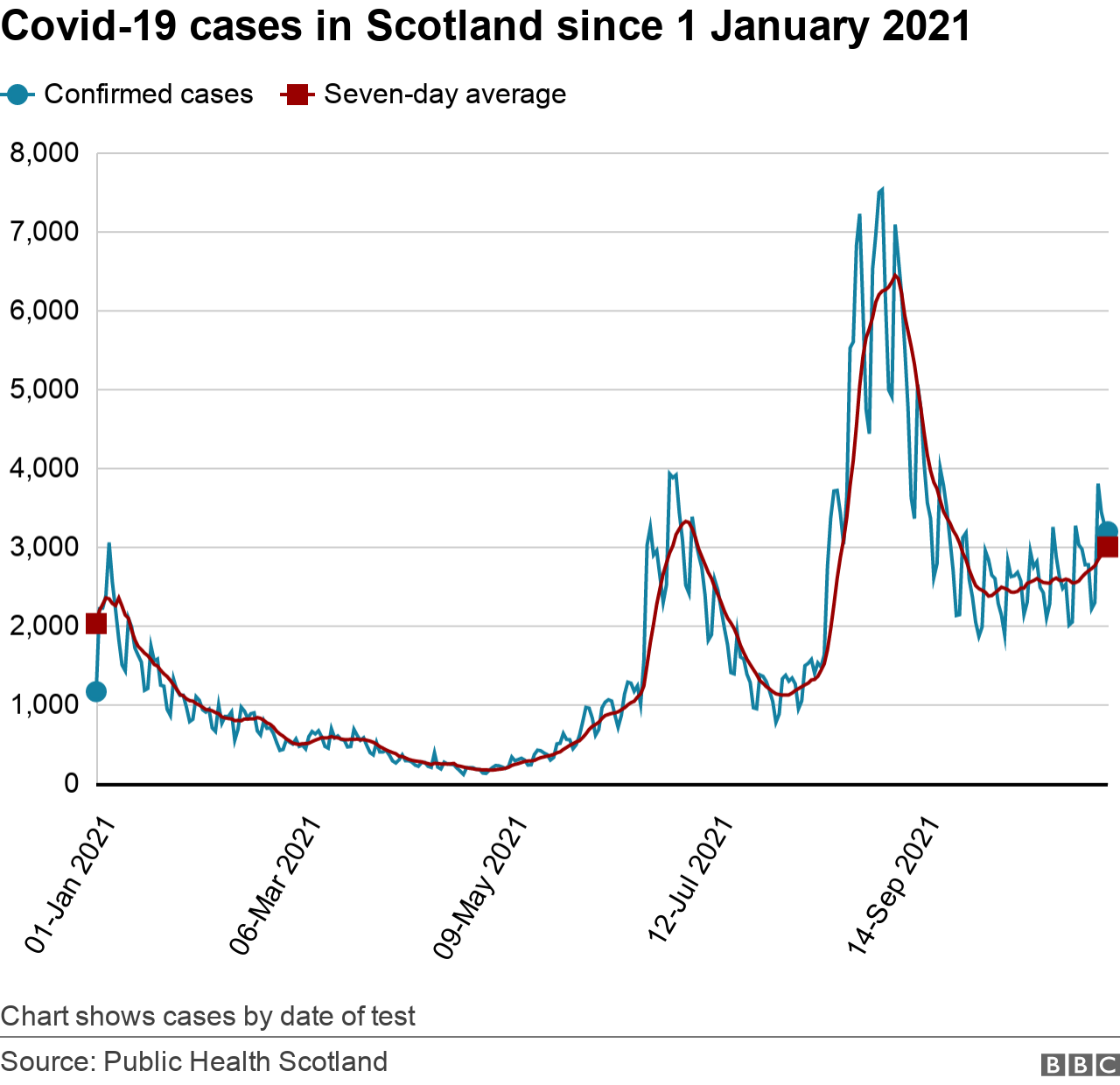
While Covid case numbers remain much lower than during the recent peak in August and infection rates are lower than in other parts of the UK, they remain at a relatively high level and there has been a steady increase in recent weeks.
Health officials are concerned that the situation remains fragile, and that a winter surge in cases could put yet more pressure on NHS services.
A sharp rise in Covid cases in Europe has led to some countries such as Austria and the Netherlands reintroducing Covid restrictions.
What could be announced later?
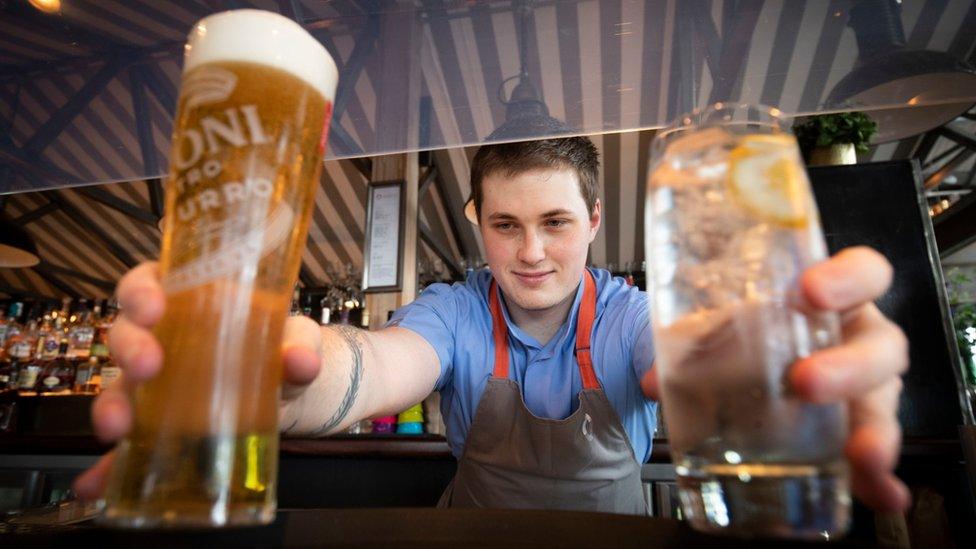
Last week John Swinney told MSPs the Scottish government was considering expanding its scheme to cover more hospitality and leisure venues.
He did not give specific examples but it could include pubs, gyms, cafes, cinemas and theatres.
Mr Swinney later said individuals may be able to show a negative lateral flow test result in place of a vaccine passport.
At the weekend government adviser Prof Linda Bauld told the Sunday Post, external people could be advised to work from home and, if that is not possible, wear a mask all day at their workplace.
On Monday Prof Devi Sridhar, chairwoman of global public health at the University of Edinburgh, said Scotland was at a "really fragile point".
She told BBC Radio's Good Morning Scotland programme that she expected a tightening of restrictions governing indoor settings.
Prof Sridhar said: "This could be, again looking at other countries, things like vaccination passes, making sure people are doubly vaccinated, asking for a negative PCR test."
She added: "The virus is finding people who are unvaccinated and then it is transmitting at such a high level and it is also finding people who are doubly vaccinated but are much more frail," she said.
Prof Sridhar said her advice would be to widen the use of vaccine passports in a bid to prevent the harsher lockdown measures being seen in Europe.
How do Covid passports work in Scotland?
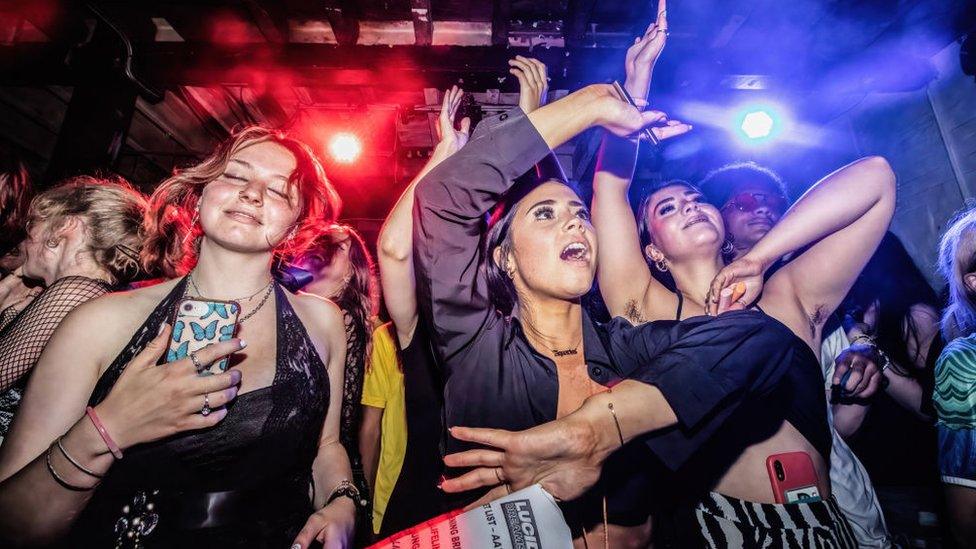
Under the current regulations individuals need to show proof they have been fully vaccinated, external to enter nightclubs, adult entertainment venues and many large events in Scotland.
These include indoor events with more than 500 people, unseated outdoor events with more than 4,000 people, and any event with more than 10,000 people.
People who live in Scotland can prove they're fully vaccinated by using the NHS Scotland Covid Status App, external to generate a QR code. A paper version is also available.
Those coming from elsewhere in the UK can show their vaccination status with the NHS App (if from England or Wales) or the Covidcert NI app (if from Northern Ireland), external - or via paper letters of certification.
Some people are exempt, including under-18s, people taking part in vaccine trials and those unable to be vaccinated for medical reasons.
So far the NHS Scotland Covid status app has been downloaded more than 1.4m times, while nearly 450,000 paper vaccine status certificates have been requested.
The number of individual users may be smaller, as some may have downloaded the app to multiple devices.
How has the hospitality sector reacted?
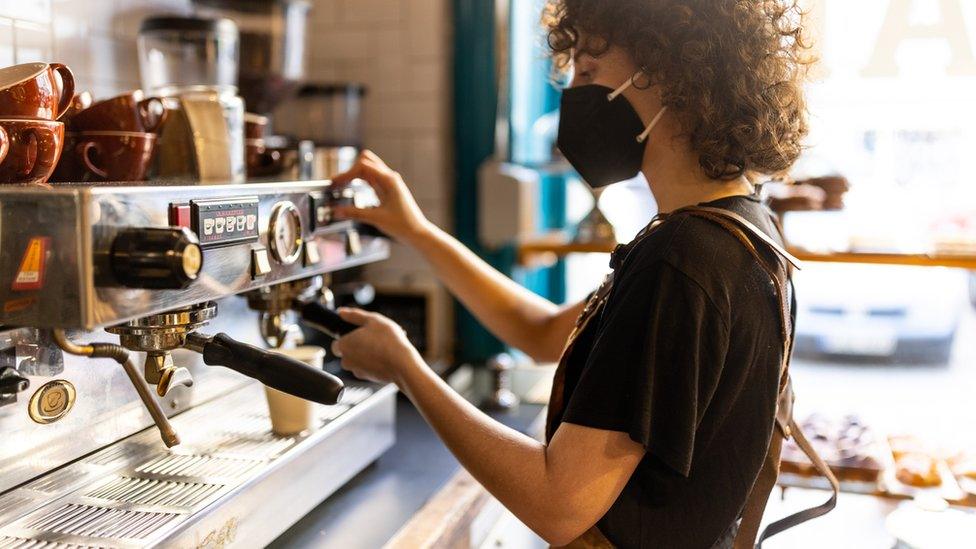
A Scottish Chambers of Commerce survey found almost two thirds (65%) of businesses were against vaccine passports being used more in the hospitality and leisure sectors, together with increased home working and greater use of face coverings.
The poll, which almost 700 firms took part in, also found nearly a quarter (24%) of businesses face "severe financial consequences" if vaccine passports and home-working measures are widened.
SCC chief executive Dr Liz Cameron warned: "Any reintroduction of restrictions will act as a painful economic deterrent for businesses across Scotland.
"We urge ministers not to take a massive step backwards in our economic recovery from the pandemic which would place thousands of firms and jobs at risk.
"Going backwards at this stage will put our recovery at risk, create further uncertainty and undermine consumer confidence."
David Lonsdale, director of the Scottish Retail Consortium, said he was "sceptical of the value" of Covid passports in stores, coffee shops and restaurants, saying there would be "practical and operational challenges".
He also said a push for more working from home would impact on shopper footfall for city centre stores, saying this was still significantly below pre-pandemic levels.
Stephen Montgomery, spokesman for the Scottish Hospitality Group, said he expects the government to work constructively with the industry if vaccine passports are extended.
He added: "We would hope that this would include discussion of appropriate government support for additional staffing and costs, with many businesses in the hospitality sector currently struggling to cope with the financial burden of the pandemic as well as an acute recruitment crisis."
What is happening elsewhere in the UK?

In Wales people now will need to show their NHS Covid Pass, external to gain entry to cinemas, theatres and concert halls.
It is already needed for entry to nightclubs and comparable venues, unseated indoor live events for more than 500 people, unseated outdoor live events for more than 4,000 people and any event for more than 10,000 people
Anyone aged over 16 who has been fully vaccinated in Wales or England can use the pass to prove their status, but it's only compulsory for over-18s.
It is also available for people who've had a negative lateral flow test in the previous 48 hours.
In September England scrapped similar plans for vaccine passports but said they could still be introduced under the government's winter "Plan B", external, if cases surge.
Meanwhile, Northern Ireland has launched a new app which people can use to demonstrate their vaccine status on a voluntary basis.
What is happening across Europe?
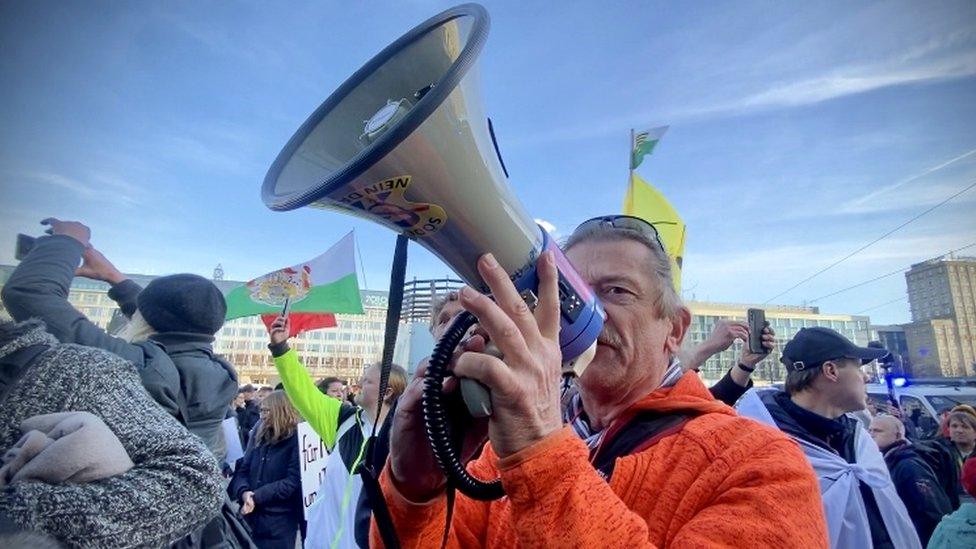
Anti-vaxxers out in force in the city of Leipzig, in Saxony which has the lowest vaccine take-up rate in Germany
Last week the World Health Organization (WHO) warned Europe is once again "at the epicentre" of the Covid pandemic.
Soaring case numbers are being blamed on insufficient vaccine take up and a relaxation of public health measures.
In Austria about two million people who have not been fully vaccinated against Covid-19 have been placed in lockdown as the country faces a surge in cases.
Meanwhile in France over-65s will soon only be allowed to travel or visit restaurants and museums if they have a Covid booster jab
In parts of Germany, which is currently experiencing an aggressive fourth wave, entrance to public places is limited if a person cannot provide verification of vaccination, recent recovery from Covid or a negative test.
In September Italy made it compulsory for all workers to have a Covid "green pass" - proof of vaccination, a negative test or recovery from the virus.
And in Switzerland Covid passes are obligatory and the rules are strictly applied.

